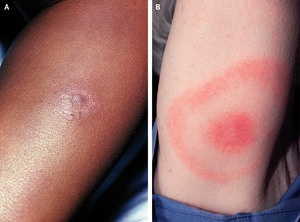Dr. Mahncke earned his PhD at UCSF in the lab where lifelong brain plasticity was discovered. At the request of his academic mentor, he currently leads a global team of more than 400 brain scientists engaged in designing, testing, refining, and validating the computerized brain exercises found in the BrainHQ app from Posit Science, where he serves as CEO.
Earlier this year, MedicalResearch.com interviewed Dr. Henry Mahncke about the BRAVE Study he led, which showed a digital health app (BrainHQ) was effective in addressing chronic cognitive issues in servicemembers who had been diagnosed with “mild” Traumatic Brain Injury. This week, MedicalResearch.com interviews Dr. Mahncke again about a new independent study among civilians showing similar results in patients with all kinds of Brain Injuries.
MedicalResearch.com: What is the background for this study?
Response: The Centers for Disease Control (CDC) estimates that about 5.3 million people currently live with a chronic disability from a Traumatic Brain Injury (TBI). While most people who suffer a blow to the head recover in a couple days or weeks, for some (estimated as high as 15 percent) the injury persists with a variety of life-disrupting symptoms, including impairments in cognitive abilities, behavior, emotions, and motor function affecting work, relationships, and daily function.
TBIs have been the signature injury of recent wars. Nearly 400,000 service members have been diagnosed with TBIs, of which 82% were diagnosed with so-called “mild” TBIs from concussions and blast injuries. More than a decade ago, we began being asked by military and Veterans organizations, to study whether our brain exercises – which had shown positive effects in measures of cognition, everyday function, mood, and motor function in healthy older adults – could have an impact on people with chronic symptoms from TBIs.
We talked earlier this year, when an 83-person, gold-standard, randomized controlled trial on mTBI (called the BRAVE Study) announced quite positive results from using BrainHQ exercises. That study was funded by the Department of Defense and run as five military and Veterans medical centers. The BRAVE Study found the BrainHQ group showed a statistically and clinically significant improvement on a standard measure of overall cognitive function (compared to a computer games control), and this benefit persisted for at least 12 weeks after training completed. Cognitive function improvements were nearly four times larger in the BrainHQ group than the control (as measured immediately following training) and grew to nearly five times larger (when measured again 12 weeks after training ended). On average, participants in the BrainHQ group improved on the cognitive performance composite measure by 24 percentile ranks – as though they went from the 50th percentile to the 74th percentile.
One large question left unanswered from the BRAVE study was whether this approach might also work for other categories of TBIs, such as moderate and severe TBIs. A new study from independent researchers at NYU answers that question.
(more…)




























